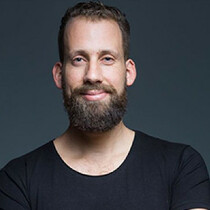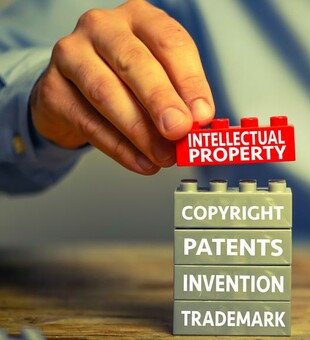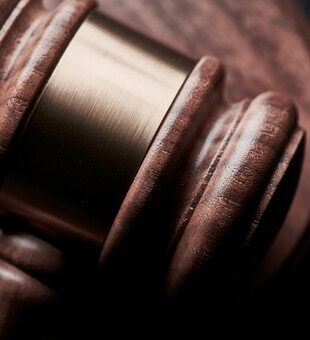Services
Legal issues
We do so that the results of labor always belong to the customer
We choose the desired shape and do all the paperwork until the result. Selection and support in a legally ideal country
Depending on who is on; which side, we keep the balance of power
Any objects of copyright and related rights, trademarks and software. in any country
We build relationships with players and users
We exclude the risks of falling under violations and fines
Relations with sponsors or prof. players under control and on paper
Full cycle of the transaction until the receipt of money and shares
Charter for work with development, a set of employment contracts, regulations and internal rules and secrets
Services
Tax and accounting support
About
GMT Legal is one of the leading international consulting companies in the IT and gaming industry in particular.
Our experts have wide expertise in the most complex areas of international and national law and are always happy to take on any task. Precision and originality: this is how our approach can be characterized. More than 100 clients around the world entrust their tasks to GMT Legal on a regular basis.
And yes, we love to play ourselves;)
Team


Advisor
International lawyer and tax compliance specialist with over 15 years of experience. An active supporter of blockchain technology. Expert in cryptocurrencies and community. He was an advisor for projects Snovio, Trueflip and several others.
International lawyer
He specializes in working with complex documents and transactions. Accompanies projects with GDPR Compliance.

International lawyer
Graduate of the University of Beijing. Expert in international corporate law and investment transactions. More than 7 years of experience worldwide. Specialist in Asian markets. Has an LLM degree.


Advisor
Lior is a visionary, cryptocurrency expert, researcher, adapter and promoter of virtual currencies since 2010.
Lior brings an extensive legal background working for several of the top ten Israeli legal firms. An expert lecturer in leading academic institutes for cryptocurrencies aspects, an associate editor for Israeli academic law journals.

Lawyer
Specializes in litigation and enforcement proceedings.
Junior associate
Provides legal support for processes in the gamedev industry. Knows how to formalize the relationship between founders, why draw up an EULA, and how not to lose the intellectual rights to the game.
Specializes in intellectual property, personal data protection.
Life hacks
Serious about crowdfunding? Get a legal opinion

Lately, regulators and investors all around the world are starting to look more closely at crypto and blockchain startups. This industry is known for being a new-age ‘wild west’, with inexperienced retail investors losing their money in countless crowdfunding campaigns.
In 2017, the number of successfully conducted token sales was 966. In 2018, the number was even higher, with 2,284 token sales. When the hype died, it was revealed that the majority of ICO’s were scams, so it was a straight-up loss for those who invested. That’s when the problems began to stack for blockchain and crypto startups. Not taking law and regulation into account can have an extreme impact on a project’s perception, its launch and its ongoing operations. Having legal professionals by your side to help you navigate the legal and regulatory framework is a crucial investment for any startup.
Many startups that had raised money during the two years prior to the end of the hype, were asked to return that money to their investors. The irony is that those startups weren’t planning to scam their investors, being public and open; even posting the names of their founders on their sites. This is what happened to Gladius, which had to return $12 million and then fold; the same happened with Intangible Labs and is now happening with TON. Why do they have such problems?
Breaching the law of any country on the sale of tokens can create this and many other issues. The US has been at the forefront of regulatory enforcement when it comes to token offerings but the US is only one market and follows only one set of regulations.
Even if you exclude the US, there are still problems with other regulators, such as the 5th Anti-Money Laundering Directive, which is basically forcing all crypto startups out of Europe. Now it’s pretty clear that all crypto startups have to get along with the law. So what’s the solution?
A legal opinion is what every startup needs
Before starting a company, many legal issues must be faced. Every regulator wants to ensure that there are no fraudulent or shady companies that could steal every last dime from the pockets of their investors. That’s why such an extensive amount of information on founders and ventures is requested by regulators before consent to operate is given. Crypto startups are no different, they also must gather substantial paperwork to be able to function properly. It is important to write and compile all the necessary documentation: the agreement with investors, the terms and conditions of fundraising, an AML/KYC policy, privacy policy and a legal opinion.
The legal opinion is one of the most important documents. It’s a detailed analysis of the company’s activities, issued by a professional law firm. Getting a legal opinion allows the startup to determine what problems may arise during the process of building a crypto startup and when raising money, by taking into account many parameters:
- the legal and economic structure of a token
- the jurisdiction of the startup
- taxes
- all fundraising documents
A good law firm will help you to overcome all these hurdles because the whole future of the startup depends on being in compliance with the law. First, you must decide what kind of token you will be offering and should ensure that you understand the necessary regulatory requirements of your token, depending on whether it is considered a security, a utility or a payment token. The only way to know this for sure is to consult with a law firm.
This is twice as important if you plan on listing your token on exchanges. Nowadays, all popular exchanges require a set of documents for compliance with their own internal policies and applicable regulations. Getting a legal opinion can make the listing procedure go faster because it determines the legal status of the token. If you don't have it, you'll only be able to list your token on shady, unregulated exchanges with zero liquidity, which won't make your project particularly reputable.
The more documents you provide, the easier it becomes for listings to be approved. For governments, crypto exchanges are the front line of the crypto industry, thus all exchanges registered in the USA, South Korea, Singapore or Japan have to comply with existing laws and must make sure that all projects they list are also legal. If a token offering was to suddenly disappear, fleeing with their investors’ money, it would be disastrous, which is why regulators want to know everything about the founders before allowing them to operate.
How to obtain a legal opinion
First of all, you need to write a white paper for investors. That’s a document describing all the technical details of your project, how it works, its commercial model or application, all the risks and what advantages the project offers. You should also describe how you plan to promote your project and in which countries. In other words, this document should contain every small detail.
Once you have it, you can take it to a law firm that can help you with the next steps. A law firm specializing in virtual currency and token offerings is GMT Legal. Professional specialists can help you with licensing (a license must be obtained for financial activities) and with the legal and regulatory aspects of crowdfunding and token offerings. They will audit your documentation, issue a legal opinion and tell you what additional documentation you need before being able to launch your project. They will then help you develop your product in compliance with the applicable laws and regulations.
You have your legal opinion - what’s next?
A proper legal opinion that determines you to be an honest company, willing only to develop and innovate, is your lucky ticket to the world of venture finance and crowdfunding. You can use the legal opinion, following the audit, to finally start raising money and doing what you planned to do, which is to build a great company with a useful product. It would all be futile, however, if you skipped the first step - complying with the law. There are some startups that didn’t prepare their paperwork and are still evading punishment - but nobody knows when regulators will come for them. So it’s better to be prepared.
Conclusion
The blockchain and crypto industry is slowly merging with the traditional financial industry. The financial industry is beginning to use all this ‘tech’ to improve the security and usability of its products, cutting costs and accessing a larger audience. Acquisitions inside the crypto sphere are becoming a regular thing and even Facebook is buying crypto startups.
No doubt, the trend will continue. But the further it goes, the more attention it gets from regulators. Recently, the G20 called stablecoins a ‘threat to the global financial system’. A few days ago, the EU proposed a new regulation for the whole industry so that the practices of 2017 do not happen again. Now, every crypto startup founder must think about the legality of their business.
Considering all this, it would be a good idea to organize the startup with legal backing right from the start. As things are now, the SEC or any other regulator can come and knock at your door 2 or 3 years after the fundraising and ask you to return all the money you’ve spent. Obtaining a legal opinion and other documents will protect you and help you avoid such a situation. So, stay within the legal framework and we wish your project good luck!
It’s my game! How to protect intellectual property in games

You’ve come up with a concept of the game that might become “The game of the year” and blow the minds of all players, even the most skeptical? Or maybe you have gone further – and after months of inventing, coding, and testing have released a game MVP? You’re excited to show your game to the world… but hold on. You definitely don’t want competitors to clone your game engine or plot without any legal consequences. If so, you need to protect your intellectual property.
Game industry and intellectual property
Since the first 8-bit console Nintendo came out in 1983, gaming has turned into a multi-billion dollar industry, exceeding by revenue all other entertainments combined. For instance, in 2019, the global box office earned $42.2 billion, while the game industry surpassed $120.1 billion, according to the Nielsen-owned SuperData. The data comprises revenues from mobile, PC, and console games, as well as AR, esports, and VR.
Any mobile or video game is a cross-nature product, blending technological and artistic elements. The program is a work of technology and embodies code, game engine, and gameplay, motion design, interfaces, etc. An artistic element includes a unique concept, characters, and music. Both technology and artistic works must be protected properly.
As the game industry experiences accelerated growth, intellectual property policies ensure the success of developers, publishers and distributors, and protect their creations against piracy and infringement.
As defined by the World Intellectual Property Organization (WIPO), intellectual property (IP) refers to creations of the mind, such as inventions; literary and artistic works; designs; and symbols, names, and images used in commerce. IP is protected in law through patents, copyright, and trademarks, which enable people to earn recognition or financial benefit from what they invent or create.
Why care about protecting game IP – real cases
Do you remember Tetris, which many of us played 15–20 years ago? The Tetris game is one of the most popular video games ever, so no surprise that many developers copy original Tetris and launch their versions. An interesting and quite controversial case happened in 2009 when Xio released the Tetris clone named Mino on iPhones. The Tetris Company saw the app and sent takedown notices – under the Digital Millennium Copyright Act – to Apple.
Xio admitted that they purposefully copied from Tetris to create their game. However, the company also said that when it was refused a license from Tetris, it meticulously researched IP law to see how to make a clone of the puzzler that would not include any legally-protected elements.
The twist is that generally the game rules and mechanics are not protected in the same way as code, music, or artwork. Nevertheless, the US District Court for the District of New Jersey didn't fully agree with Xio's defense that their clone only borrowed not protected ideas and in 2012 ruled that Mino is infringing on the copyright of the Tetris Company.
Another much-talked-of case incident involved Epic Games and Fortnite, one of the most-played games today. In 2018 a number of dancers tried to sue Fortnite for exploiting their moves in the game. Individual dance steps can’t be protected according to US copyright law, but choreographic routines can (though, there are issues with establishing the boundary between them). Rapper 2Milly, Alfonso Ribeiro and Russell Horning filed their lawsuits with the U.S. District Court for the Central District of California. In 2019, Fortnite dance lawsuits got dismissed after a new Supreme Court ruling – dancers will have to wait for copyrights on their dances to refile the suits.
How to protect game intellectual property?
The game industry is a fusion of technology and creativity, which means that game creators may have many difficulties in protecting their brainchild as intellectual property. How to secure both the computer program and the artistic elements of the game? What documents, licenses, and agreements are needed?
While most things are case-specific and depend on the game peculiarities, there are certain pillars that you need to consider either way:
- Choose an appropriate jurisdiction for game IP protection.
When selecting a jurisdiction, you should thoroughly consider your requirements. Do you intend to protect only the computer program or want to copyright the plot and characters as well? Do you plan to sell the right to use particular game elements to third parties (e.g. in books, movies, or merchandise)?
The choice of legal framework will largely depend on the answers, as each country treats games differently in the context of intellectual property: as software, as audiovisual creation, etc.
- Identify objects that can be protected by intellectual property law.
In the game industry, intellectual property is protected through copyright, trademarks, and patents.
Copyright covers music, program code, game plot, and graphics. As a trademark, you can register the name of your company, its logo, and the game name. Characters and website design can be protected either with copyright or with a trademark. And finally, a patent helps to protect hardware technical solutions, elements of the game design, and technical innovations (software design, interactive computer network or database.
- Prepare all the necessary documents – and do it in a correct way.
While you may choose to do everything on your own, note that it's essential to fill in the documents thoroughly and provide all the required details. So, a better option is to seek professional legal assistance.
- Register your intellectual property.
While trademarks and patents may seem attractive ways to protect intellectual property, in practice games and game mechanics are hard to effectively secure with these methods.
A trademark is valid only in the jurisdiction where it is registered. In case you have an online game and players worldwide, you'll need to register the trademark in every specific country or submit an international application using the Madrid system. To get a patent for game elements such as design or technical innovations, you are to first prove that the patented invention is new and not obvious.
Most companies choose the copyright to protect their IP in gaming.
In the US, there are two approaches to registering the game. It can be protected as a literary or audiovisual work. Also, copyright covers the plot of the game, characters, music, graphics, website design as well as virtual reality (for online games). According to US law, a patent protects unique functional or visual elements of the game, innovations in software, hardware, or database.
In Russia, games are classified as literary works. Companies can also protect their products by registering the code as a computer program.
Why consider Russian jurisdiction for gaming IP protection?
The Russian game market is constantly growing, along with it the improvement of the laws related to intellectual property, information and technology. According to various estimates, in 2019, the Russian video game market amounts from $1.57 billion (Statista) to $2 billion (Yandex).
Russian legislation offers game development companies and publishers comprehensive opportunities to protect their artworks and do it quickly and relatively inexpensively, in comparison with other countries.
GMT Legal, which renders consulting and legal services to fintech and IT companies internationally, defines the following key benefits of selecting Russian framework for protecting IP in gaming:
- Its Federal Service for Intellectual Property (Rospatent) allows you to register the game as a computer program and protect your copyright and authorship, while most 90% of countries don’t give such an opportunity.
According to the WIPO, “for some countries, video games are predominantly computer programs, due to the specific nature of the works and their dependency on software. Whereas in other jurisdictions, the complexity of video games implies that they are given a distributive classification. Finally, few countries consider that video games are essentially audiovisual works.”
- It’s possible to protect not only the code and the application itself but game elements, such as characters, storyline, and even the game logic as well. Thus, both technical and artistic elements of your game will be extra secured from infringement by competitors.
- After the registration, you can make an assessment of your intangible asset and do anything with it – sell (as a whole or partly), transfer, or put it on the company’s books and records. This gives your business additional opportunities for game monetization. For example, you can sell the rights to create a film adaptation, thematic souvenirs and merch, etc.
- The cost of registration of the computer program is 4500 RUB (just around $60).
Final thoughts
As in any industry, companies in gaming create unique products that need not only physical and information security, but also intellectual property protection. If you invest your money, energy and skills in creating a game, it is extremely important to invest in protecting your IP rights as well.
You should carefully study and choose the legal framework you operate in – to avoid violating someone else’s copyright and to combat illegal copying of your game by competing agents, including foreign companies. The best way is to consult professionals that will accompany you through the entire process, from registering a name to protecting all elements of the game.
How to choose the right jurisdiction for your game development company

The game industry has become a fully-fledged form of entertainment for a wide audience. Every year sales grow as more and more people get access to gaming consoles, personal computers and mobile devices. It can be compared to the movie industry and even surpasses the music industry, in terms of its revenue. The revenue of the gaming industry was $151.9 billion in 2019. Video games are played by almost 2.5 billion people in the world. In the last ten years, video games have become a universal form of entertainment. No wonder this industry needs more and more development teams to support the growing demand.
What are the necessary steps for those who want to start a new game development company? The first step is to register your company under the right jurisdiction. This is one of the most crucial steps because it influences all aspects of your operations, from copyrights to paying taxes. Thus, it should be chosen after thoughtfully weighing up all the pros and cons pertaining to all the available jurisdictions.
A brand new start
Let’s suppose someone decides to start a new game development company. First of all, it’s important to establish what genre of games they plan to develop: will it be regular video games for all audiences, 18+ games or will it be casino games?
For casino games, a special gambling license is required which would either be an international (offshore) license that allows coverage for larger markets or it would be an internal license to legally operate in a specific country. Among the countries that require a special internal licence are the United Kingdom, Bulgaria, Romania, Estonia, Belgium, Spain, Portugal and Mexico.
For all other types of games, a license is not required but there are many other important aspects for every game developer to consider before choosing a jurisdiction:
- Taxes - Taxes are number one on this list because the amount of taxation defines how much you can earn, thus how fast your business can become profitable.
- Intellectual property - The crucial factor for every developer. You must always understand what you are going to do if you encounter copyright infringement. For instance, suing someone in your jurisdiction if that someone violates your rights.
- How easy it is to get funding there - Of course, not everyone needs funding, but having an appropriate regulatory framework for getting investments might be handy in some situations.
There are also many additional requirements to take into consideration, such as getting an ESRB rating for marketing and distributing purposes, getting a license for music and for using other in-game trademarks (such as car models or football players). All these aspects are different in all countries and will have a direct impact on the performance of your business. If you have lower taxes to pay, it means you’ll have a bigger budget to spend on the development phase.
Step-by-step guide
For those who want to start a game development business, here’s a list of the necessary steps to do it:
- Find an appropriate jurisdiction.
- Choose your business structure. Should it be an LLC, a corporation or a partnership? Legally, it affects everything from how you file your taxes to your personal liability if something goes wrong.
- Register your company.
- If you’re involved in online casino activities, get a gambling license - an international or an internal one.
- If you already have something substantial, like a functional game, it’s time to register your intellectual property. You have to file an application for registering your trademark, the name and the logo of your game. Also, you have to file an application for copyright, which will protect all the content of your game - characters, music, animations, illustrations, etc. That will give you enough legal base to defend yourself.
Of course, all these legal requirements can be too hard for a developer without specialized education. That’s why you can hire a professional company to do it for you. For example, GMTLegal specializes in the gaming industry, intellectual property, licensing and tax law. All these legal activities can be outsourced to a specialized company that can manage them in one or even several jurisdictions, should your company grow to a giant size.
Best countries for game developers
The majority of top-class game developers reside in the same countries, the best ones for conducting a game development business are:
- The United States - It has an independent judicial system, very strong support of copyright and it has many programs for new businesses. For example, a refundable tax offset for the cost of eligible research and development activities. If you’re a developer startup in the USA and you pay taxes, you may ask for a refund.
- Finland - A country under the EU jurisdiction and a haven for developers. Many worldwide-famous companies reside there: Unity (the game engine), Rovio (Angry Birds), Supercell (Clash Of Clans), RedLynx (Trials series), FrozenByte (Trine) and Remedy (Max Payne, Quantum Break). All of them have support from the Finnish government, which has supported over 100 game studios in the last 15 years.
- Canada - This country offers tax incentives to game developers and is promoted by Canada's Entertainment Software Association. Here reside such companies as Bioware (Mass Effect, Star Wars: KOTOR) and Ubisoft (Assassin’s Creed, Rayman).
- Japan - The cradle of the video gaming industry and Japanese game developers are still some of the best in the world. It’s easy to find financing there though the only problem for foreigners is the language barrier. Taxes in Japan depend on company income. If you make up to 4 million yen, you pay 15%; if you make over 8 million yen, your taxes increase to 23.4%
- Russia - It may come as an unexpected inclusion in this list, but it’s a great choice for game developers to incorporate and settle in. Russia offers a diverse legislative framework for protecting your intellectual property because its Federal Service for Intellectual Property allows you to register a video game as a computer program - which is rarely encountered in other countries. Also, since the pandemic started, the Russian government declared that taxes for all IT companies will be lowered from 20% to 3%, to stimulate the digital industry in the country.
There are far more jurisdictions and countries in which to start a game development biz, but these are among the most popular. If you want your business to grow and be able to defend its interests, you should set the proper foundation and a part of this foundation is the right jurisdiction. If you don’t know how to choose, you can hire professionals to do it for you.
Conclusion
Game development is a very large industry with a high entry-level. Anyone with a personal computer and a desire to create something new can hop on board. The only thing that’s necessary is passion and love for video games. But everyone who’s gotten into the industry has had to think a few steps ahead. How do they plan to grow? How do they plan to protect their intellectual property?
The more people hired by the development studio, the more taxes the business has to pay. If it has a dispute over intellectual property, usually it’s solved in the jurisdiction of the defendant. That way, if you have the liberty of choosing, you should find the one that suits you the most, whether it’s just for incorporation purposes or for operating in the same country where the company is registered.
Comprehensive guide on dealing with a game publisher

Game developers and publishers often seem to live in parallel universes. While developers are creators and ‘visioners’ with artistic freedom and an infinite number of ideas to implement, publishers focus on business and can easily bring developers down to earth with heavy-handed control. Still, publishers are the key to turning a game into a best-seller.
Together with GMT Legal, an international company providing legal support to FinTech and gaming companies, we’ll highlight what you should do to get a ‘Developer-Publisher’, win-win deal and sustain your rights.
Game publishing 101
A game publisher is a company that handles the business-related end of the game – budgeting, marketing & release, distribution, branding, PR and other areas. Some publishers can also fully or partly finance game or app development and can support its localization and distribution in foreign markets. Today, publishers are a key partner for developers (especially indie ones) to get the game released and distributed worldwide.
The game publishing market is a large-scale industry with hundreds of companies involved in mobile and video game publishing. As per Metacritic’s ranking, the most notable publishers in 2019 were: 505 Games (Dead by Daylight, Control, the PC release of Death Stranding), Activision Blizzard (World of Warcraft, StarCraft, Call of Duty, Diablo), Nintendo (Super Mario, the Legend of Zelda, Pokemon), Paradox Interactive (Age of Wonders: Planetfall), Capcom (Devil May Cry, Resident Evil).
In exchange for their services, the publishing company makes returns on game sales, usually for each platform it works with. The bigger the effort required from the publisher, the lower the developer’s royalty will likely be. Besides, it depends on the publishers’ role, their internal policies, reputation and the terms of the partnership. According to estimates, a fair revenue split is considered to be between 80/20 and 50/50 in the developer’s favor.
How to approach game publishers.
Partnering with a publishing company is a serious business decision that will have a direct impact on your game’s future – you need to take comprehensive steps to succeed in it. As GMT Legal admits, it is not easy to find the right partner that will suit your needs, goals and most importantly, will offer you favorable terms from a legal and business perspective. The reason lies behind the following facts:
- The publishing industry is saturated – game developers have to compete for a publisher. Experienced companies say that publishers tend to engage only with developers they know or come recommended. Due to this, almost 95% of game submissions by ‘unknown’ developers get rejected.
- The launch of any game is always at great risk of commercial failure. In other words, the publisher can invest money and lose it, if game sales fail.
- Publishers can force unfavorable terms and conditions. In most cases, publishers are well-established companies with a pool of expert lawyers, while developers don’t have these capabilities. Therefore, agreements may include deal points that don’t work in the developer's favor at all.
If you’ve chosen the game publishing route, it should include the following steps:
- Clearly define the goals and services you want to get from a publisher. Do you need a budget for development, help with game distribution or perhaps assistance with marketing or legal support? Publishing companies can offer a 360-service or specialized ones – and once you decide on your needs, you’ll be able to narrow down the list of possible options.
- Do the research and create a shortlist of publishers. You can take advantage of various tactics: ask fellow developers about their experience, explore the market, look for client testimonials online and attend game development conferences and meetups.
When doing the research and evaluating publishers, it’s important to examine: whether the publisher has expertise in distributing games that are similar to yours, what its capabilities are, their partner network, market reputation and whether the publisher uses sub-distributors.
It should be noted that every publisher has their policies, strategies, standards and guidelines regarding developers that they work with – you need to study these. To name a few, most mobile publishers won’t accept a game if there is no iOS version developed for it. Or they may refuse a game that is already ‘live’ and sold in stores or digital platforms.
- Pitch your game. There is no one-size-fits-all for the pitch, but bear in mind that bombarding mailboxes with emails and presentations won’t make any difference – they will probably end up in a spam folder. More effective ways are through word-of-mouth, pitches on game dev show and via LinkedIn.
The pitch format should also depend largely on the publisher’s guidelines but overall, it should be to-the-point, contain a game trailer and gameplay video as well as an explanation about why your game will hit a ‘win’ among players.
Once you have found a suitable publisher, they are impressed with your game and are ready to collaborate; the next logical step is to sign a publishing agreement, which is a document that establishes the business and legal relationship between you (the developer) and the publisher. To get the best publishing deal, you should be prepared to negotiate the terms and know what pitfalls to look out for.
Key pitfalls in publishing agreements
Partnership with a publisher opens up huge opportunities for developers: access to their expertise, resources, marketing & distribution reach and know-how. At the same time, as a game creator, you must be concerned about the legal aspects of the relationship – distribution rights & ownership, costs & fees, schedules, exploitation of the game,royalties, etc.
In developer-publisher relationships, there are several main scenarios:
- The publisher hires you as a game development team, they will own the copyright to the game and will pay you royalties from the sales revenue.
- The publisher pays you for the development of the game based on a concept created by a third-party developer and pays royalties, but does not own the copyright.
- The publisher acts only as a distributor for your game and will receive a fee for it. The game ownership belongs to you.
- (For mobile games) The publisher agrees to publish your game, exposing it to the publisher’s network of users and receives a fee based on the sales revenue.
While general terms in the publishing agreement are the same for each use-case, there can be certain differences around ownership provisions, responsibilities, rights and the obligations of each party. Besides, the agreement content varies depending on the services to be provided by the publisher (e.g. only distribution and marketing or inclusion of financing as well).
To get a fair deal and protect your rights, GMT Legal suggests you pay particular attention to these aspects of the publishing agreement:
- Ownership
Unless you're hired and paid by the publisher to develop a game, you’ll want to secure your ownership rights. Most of today’s publishers won’t object to it but they still might insist on certain privileges for exploiting the game and its elements further, such as a license to use the game’s IP (source code, gameplay) for their games, the trademark or a license to use and distribute sequels and spin-off games.
It’s always up to you to decide what license to grant the publisher. You may decide to give an exclusive license (the rights are given to a single publisher) or a non-exclusive license (the rights are sold to multiple publishers).
- Distribution terms
If the publisher has ownership of the game, they can distribute and exploit the game wherever they want. If you own the copyright, you can negotiate distribution terms – allowing the sale of the game worldwide and on any platform or only in an agreed region or platform.
Be mindful that a publisher can either distribute the game on their own or using a third-party – a sub-publisher or sub-distributor. In this case, you must clarify all aspects of the publisher and subcontractor relationships (rights, obligations, etc.) and be aware of any possible further deductions from your royalties in order to pay to the subcontractor.
- Royalties
Typically, royalties are agreed on as a percentage of net revenue from the sales of the game. This share can be further reduced or increased, depending on the dynamics of the publisher’s financial commitment and investment.
As a developer, you may be entitled to receive royalties only after the publisher recoups all their costs from the gross revenue.
- Termination of the agreement
Termination is a way out for either the developer or the publisher, in case the partnership isn’t fruitful or as smooth as expected. Just like any contract, a publishing agreement should state the ways to terminate it.
Since termination can result in huge financial consequences, each party usually tries its best to limit the grounds for termination. Still, it is paramount that the publishing agreement describes in detail all the scenarios for termination and the liabilities that pertain to each party.
From the developer’s perspective, the most common grounds for terminating the agreement is the publisher’s inability to pay royalties as agreed, failure to provide services or fulfill obligations, and bankruptcy.
Negotiations and professionalism make the deal
Partnership with a publisher is a ‘time and effort’ consuming process, say the experts from GMT Legal. And the key to success lies in two factors – the desire to negotiate and legal support. If you want to deal with publishers but don’t want to make the wrong step, you can get a game lawyer to advocate on your behalf and represent your interests.
It’s true, legal services cost money but the game you’ve created costs much more and is much scarier to lose. Keep in mind all the points and tips mentioned in the article and may your publishing deal be rewarding and open up new horizons for you and your brainchild!
Partners






Prices
…but many people ask for examples of
-
Contract with publisher in English300 USD
-
Company registration in Cyprus600 USD
-
A package of documents for the game website700 USD
-
Submission of reports to the Russian Federation200 USD
FAQ
-
We will answer with a question. If something works well, why change it? Let's say thanks for still not playing San Andreas.
-
Of course. They will help put everything in its place in disputable situations. We will show you how to compose them correctly.
-
As a general rule, no, and this is directly stated in the law. However, we do know some tricks.
-
Tax planning and cost optimization are boring but important things. If you take care of this beforehand, it will be more effective.
-
Depends on your tasks. We register companies all over the world and know where gaming projects are especially welcome.
-
You will need a Level 7 Argul Shield and properly prepared documents.
-
Sometimes it's easier. But to completely replace us, you have to hire from 5 to 10 full-time lawyers
-
The indie developer is not much different from the AAA studio in terms of the laws that apply to them. The only question is the size of the checks.
-
We are equally well aware of the specifics of games and law. Experience in both areas ensures good results
-
Lawyers, like programmers, count their work by the hours spent. We have extremely transparent pricing and on average work costs $ 150 / hour
Contacts
Contact us
We help especially outstanding teams with investments
